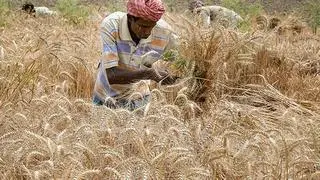The World Bank Group (WBG) Board of Executive Directors on Friday endorsed a new Country Partnership Framework (CPF) for India.
The CPF aims to support India’s transition to a higher middle-income country by addressing some of its key development priorities — resource efficient and inclusive growth, job creation and building its human capital.
The India CPF represents the largest country programme of the WBG, reflecting the strong collaboration between India and the Group’s institutions — The International Bank for Reconstruction and Development (IBRD), International Finance Corporation (IFC) and Multilateral Investment Guarantee Agency (MIGA). The WBG expects to deliver $25-30 billion during this CPF period, ending in FY22.
“With a fast growing economy, global stature, and its unique experience of lifting the highest number of poor out of poverty in the past decades, India is well-positioned to become a high middle-income country by 2030,” said Hartwig Schafer, World Bank South Asia Vice-President. “This CPF charts a path for how the World Bank, IFC and MIGA, will leverage their relative strengths to deliver stronger development outcomes for this dynamic country, half of whose population is under the age of 25.”
Welcoming the CPF, Subhash Chandra Garg, Secretary, Department of Economic Affairs, said, “I compliment the World Bank Group for aligning the CPF with India’s development and investment objectives of high, sustainable and inclusive growth. I hope that the World Bank Group will be able to use its global experience and expertise in assisting India to achieve its objectives.”
The CPF is underpinned by the Systematic Country Diagnostics (SCD), the World Bank Group’s comprehensive analysis of the opportunities and challenges for India to achieve poverty reduction and shared prosperity in a socially and environmentally sustainable way, and builds on extensive consultations with the government, the private sector, civil society and academic experts from across the country.
Junaid Ahmad, Country Director, World Bank India, said: “The future of India lies in the States of India. The country’s transition to high middle-income status will be determined in large part by the effectiveness of India’s federal compact”.
“In this context, an important focus of the CPF will be to deepen engagement with India’s States and invest in the institutions and capabilities of the states and local governments to address their development priorities,” he said.
The WBG will focus on three broad areas under the new CPF: promoting a resource efficient growth path, particularly in the use of land and water, to remain sustainable; enhancing competitiveness and enabling job creation; and investing in human capital — in health, education, skills — to improve quality and efficiency of service delivery.
Within these, some areas of deeper WBG’s engagement will include addressing the challenge of air pollution, facilitating jobs for women, increasing the resilience of the financial sector and investing in early years of children’s development. Across the sectors, the WBG will invest in harnessing the impact of new technology.






Comments
Comments have to be in English, and in full sentences. They cannot be abusive or personal. Please abide by our community guidelines for posting your comments.
We have migrated to a new commenting platform. If you are already a registered user of TheHindu Businessline and logged in, you may continue to engage with our articles. If you do not have an account please register and login to post comments. Users can access their older comments by logging into their accounts on Vuukle.